All Stories
-
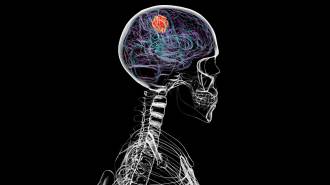 Humans
HumansBrain cancer can dissolve parts of the skull
Glioblastoma doesn't just affect the brain. It also erodes bones in the skull and changes the composition of immune cells in skull marrow.
By Meghan Rosen -
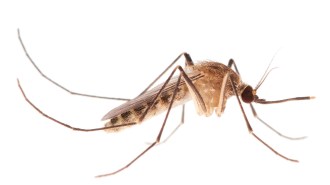 Animals
AnimalsSubway mosquitoes evolved millennia ago in ancient Mediterranean cities
A variety of subway-dwelling mosquito seems like a modern artifact. But genomic analysis reveals the insect got its evolutionary start millennia ago.
By Jake Buehler -
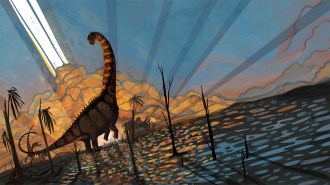 Paleontology
PaleontologyDinosaurs were thriving before the asteroid hit, new analysis suggests
New dating of New Mexico rocks suggest diverse dinosaurs thrived there just before the impact, countering the idea dinos were already on their way out.
-
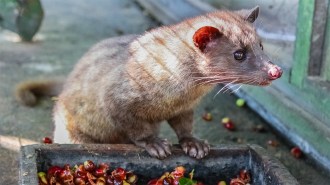 Chemistry
ChemistryCoffee beans pooped out by civets really are tastier. Here’s why
Pricey civet coffee gets its cred from its journey through the mammal’s gut, which changes the content of fat, protein, fatty acids — and even caffeine.
-
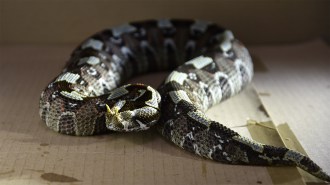 Animals
AnimalsWhich venomous snakes strike the fastest?
Vipers have the fastest strikes, but snakes from other families can give some slower vipers stiff competition.
-
 Quantum Physics
Quantum PhysicsQuantum ‘echoes’ reveal the potential of Google’s quantum computer
Google says its quantum computer achieved a verifiable calculation that classic computers cannot. The work could point to future applications.
-
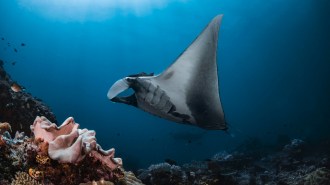 Animals
AnimalsScientists and fishers have teamed up to find a way to save manta rays
Thousands of at-risk manta and devil rays become accidental bycatch in tuna fishing nets every year. A simple sorting grid could help save them.
-
 Health & Medicine
Health & MedicineMost women get uterine fibroids. This researcher wants to know why
Biomedical engineer Erika Moore investigates diseases that disproportionately affect women of color.
-
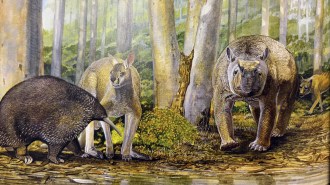 Humans
HumansAn ancient bone recasts how Indigenous Australians treated megafauna
A new look at cuts on a giant kangaroo bone reveal First Peoples as fossil collectors, not hunters who helped drive species extinct, some scientists argue.
- Physics
A tiny, levitated glass sphere behaves like the hottest engine ever made
At an effective temperature of 13 million kelvins, the jiggling glass sphere could help scientists understand physics at the microscale.
-
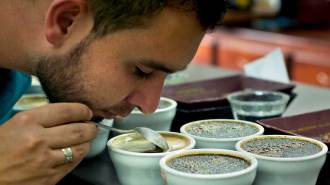 Health & Medicine
Health & MedicineCOVID-related smell loss may last years
Using a scratch-and-sniff test, researchers discovered that smell loss after COVID-19 may linger for more than two years.
By Meghan Rosen -
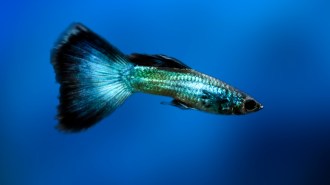 Animals
AnimalsGuppies fall for a classic optical illusion. Doves, usually, do too
Comparing animals’ susceptibility to optical illusions can show how perception evolved.
By Sujata Gupta